Russian security case
A rather large number of Russians sheltered the Kingdom of Serbs, Croats and Slovenes (S.H.S.), then the so-called future Yugoslavia, as well as Bulgaria. At one time, King Alexander I Karageorgiyevich, who studied in Russia and sincerely believed in the ideals of the Orthodox-Slavic brotherhood, and also considered himself obligated to render all possible assistance to former subjects of the power, who not once rose up to defend his homeland, let the remnants of the Wrangel Russian Army. Belo émigrés were granted civil rights here. By 1941, the minimum number of Russian colonies in Belgrade was about 10 000 people. Many universities, theaters, railways of the country were staffed by Russian specialists.
In the spring of 1941, after Yugoslavia was occupied by the Germans, they appointed the former Major General of the Czarist Army, MF Skorodumov, the chief of the Russian emigration in Serbia. Skorodumov was a member of the First World War, was seriously wounded and was captured by German, from which he tried to escape three times, but failed. On the initiative of Grand Duchess Maria Pavlovna in 1917, he was exchanged for a German officer and arrived in Petrograd, where he was sucked into a whirlwind of events of the revolutionary upheavals that began in the country.
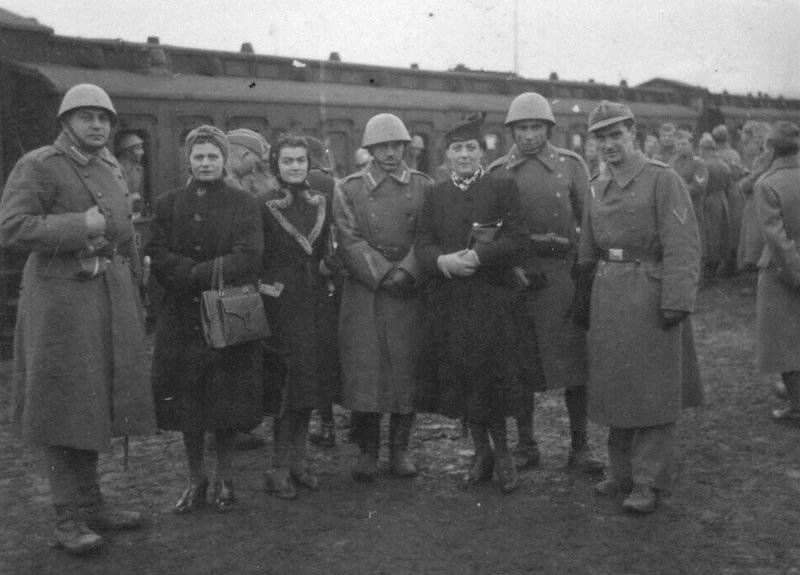
Immediately after the German attack on the USSR, the Russian emigration split into 2 opposing camps. The so-called "defeatists", that is, those who believed that it was necessary to stand on the side of Germany and help defeat Bolshevism (some of the emigrants were completely sincerely mistaken about the plans of the Germans and the Japanese, believing that they were fighting only Bolshevism), and defencists ", immigrants who believed that it was necessary to forget the old hostile attitude towards the Bolsheviks and together defeat the enemy who attacked the common homeland. One of the few ideas embodied in the life of the emigrants was the creation in the territory of Serbia of the Russian Security Corps.
Already in June 1941, the head of the Russian Trust Office in Yugoslavia (an organization that represented the interests of the Russian emigration before the German occupying forces), Major General M.F. Skorodumov proposed to form a separate division from the emigrants of the Russian army, but received it is a failure. In the first weeks of the war, the need to create such units did not seem necessary to the Germans, and besides, among the German command, nationalist views were very strong at that time, following which the Russians, although opposing the Bolsheviks, remained Russians. The ultranationalist views were very strong, all the peoples of Europe were distributed along racial pyramids and the position of the Russians in it was extremely unenviable.
At the same time, over time, away from Berlin in the occupied territories and fronts of World War II, the German generals were convinced that the need for cooperation with other nationalities was overdue and it was necessary to start a partnership dialogue with them. And if on the main fronts this was finally understood only by 1942, then in the Balkans the situation was clarified already in 1941. Tito's partisan communist squads appeared on the occupied territory of Yugoslavia. In addition to committing sabotage against the occupation forces, they also killed Orthodox priests and Russian émigrés, considering them to be accomplices of Hitler's Germany. These facts could not affect the mood of Russian immigrants. Skorodumov once again appealed to the Germans with the request to create at least self-defense units against the Yugoslav partisans.
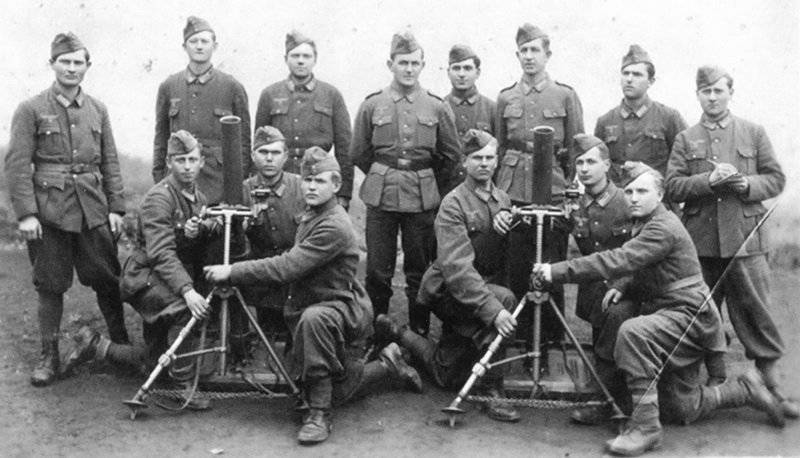
The very fact of strengthening the partisan movement in the Balkans raised before the German leadership the question of finding additional opportunities for conducting police and security services. Against this background, it was decided to allow the formation of Russian armed groups. The initiators of the creation of these formations left no hope that after they dealt with the “communist gangsters” in the Balkans, they would be able to get to Russia and begin the struggle for its liberation from the Bolsheviks.
An interesting moment is that later in their memoirs many veterans of the Russian Security Corps tried to present their service to the Germans as an act of necessary self-defense in response to the persecution of Russian emigrants by the local communists. But if you accept this version, it becomes completely incomprehensible why General Skorodumov, as well as other leaders of emigration, from the very beginning sought to send Russian troops to the Eastern Front. Later, trying to whitewash themselves, former collaborators began to issue a result for the cause. Like many other White emigres who were scattered throughout Europe, they were eager to take revenge for the offensive defeat in the Civil War, even with the help of Hitler and the German troops. It is not surprising that after all this, in the eyes of the majority of the Serbian population, Russian emigrants began to be perceived as henchmen of the occupation regime.
The order to form the corps was received on 12 on September 1941 of the year from the commander of the German forces in Serbia. Skorodumov was appointed its commander, who immediately engaged in the mobilization of all emigrants aged from 18 to 55. Already by October 1, the volunteer 893 was in the corps. Among them were the 90 of Kornilov, plus a platoon of the Kutep Company. Colonel Kondratyev arrived in the corps along with the banner of the 2 of the Kornilov Shock Regiment, which for the whole white movement was considered a symbol of valor.
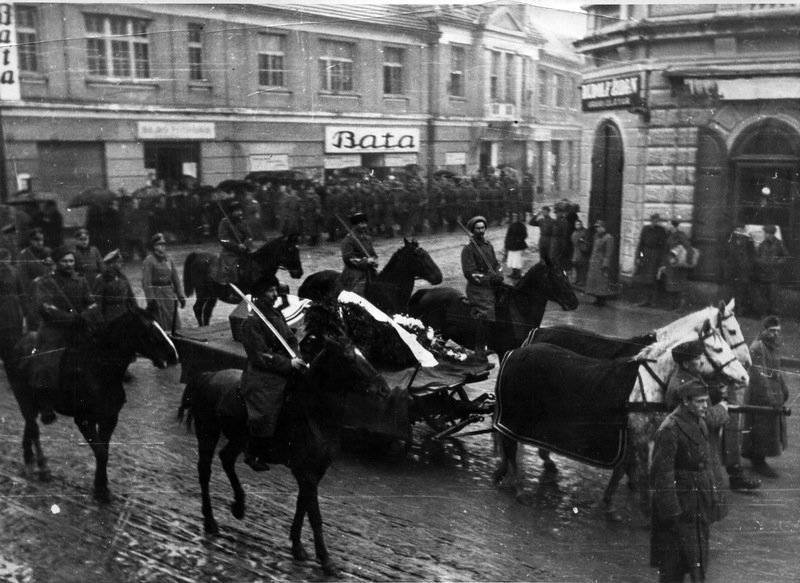
Soon enough Skorodumov was removed by the Germans from the command due to his excessive political activity and constant requests to send a corps to Russia. The new corps commander was Lieutenant-General B. A. Steifon, chief of the corps headquarters. The number of corps gradually grew. It achieved its greatest prosperity by September 1944, when it included 11 197 people. It consisted of 5 regiments, one of which was Cossack, and also included 3 separate battalion and 5 platoons, one of which was equestrian.
During its existence, the corps managed to change a number of official names:
C 12 September 1941 it was called the Separate Russian Corps;
From October 2 1941 - Russian Security Corps;
From November 18 1941 - Russian Security Group;
From November 30 1942 - Russian Security Corps (Wehrmacht);
From October 10 1944 - Russian Corps in Serbia;
From 31 December, 1944 is just a Russian Corps.
All military actions of the Russian Corps can be divided chronologically into the 3 stages:
1. Autumn 1941 - Spring 1944 - Corps units carried a security service on the communications of German troops in Eastern Bosnia and Serbia.
2. Spring - Autumn 1944 - Corps units are involved in large-scale combat operations by Germany and its allies against Tito's partisans in Serbia and Bosnia.
3. Autumn 1944 - May 1945 - active battles on the front against the Soviet, Bulgarian troops, as well as the NOAJ (People’s Liberation Army of Yugoslavia).
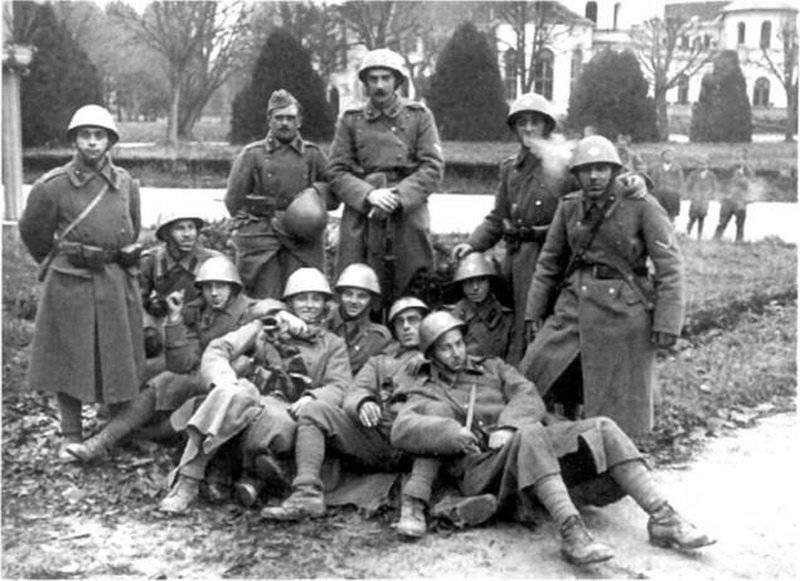
Unlike most of the Eastern formations of the Wehrmacht, not a single German officer in the Russian corps had a disciplinary authority, and also did not hold a command position. Directly to the German command only the corps commander submitted. The German personnel in the corps consisted of 2 officers at its headquarters, as well as the headquarters of each of the regiments and battalions, 2 non-commissioned officers - instructors in companies. In addition, in the hands of the German military officials and non-commissioned officers were all the economic institutions of the armed association.
The official form of the corps was an intertwined form of the Yugoslav army, the soldiers and officers of the corps wore insignia of the imperial army. The inner life in the corps was organized according to the structures of the imperial army, and the military unit was organized according to the regulations of the Red Army. After the corps was incorporated into the Wehrmacht, the statutes of the German troops were introduced. For most of the war, the corps was scattered around various Yugoslav cities, where he carried out garrison service, covering up communications and engaging for operations against Tito's partisans.
The rapid capitulation of Bulgaria and Romania in August-September of 1944, as well as the defeat of the German group of armies “Southern Ukraine” radically changed the situation at the front and in the Balkans in particular. Unexpectedly for the German command, the Soviet units were directly at the borders of Yugoslavia. It was at this time that the units of the Russian Corps, along with individual units of the German troops, entered into military clashes with units of the Soviet 57, as well as their newly-minted allies, the Bulgarians. At the same time (September-October, 1944), members of the families of corpsmen, as well as all Russian immigrants who wanted to leave the city, were evacuated from Belgrade.
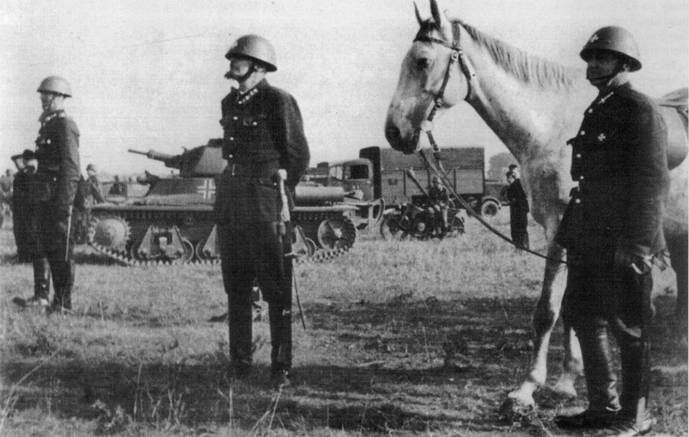
The fighting between the corps units and the 57 army was very bloody. Both sides hate each other. Soviet soldiers woke up hatred of the whites, who tried to strangle the people as a civilian, although almost no one in the army participated in the civil war. In turn, the soldiers of the corps awoke hatred for those who forever changed and ruined their lives. Because of the losses incurred, many shelves of the hull were abolished.
The capitulation of Germany found a corps in the territory of Slovenia. The day before, on April 30, corps commander B. A. Steifon died of a heart attack and was replaced by Colonel Alexander Ivanovich Rogozhin. The new commander announced that the corps will not fold weapons in front of the USSR and the Yugoslav partisans, Tito would go on a breakthrough to Austria, trying to get into the British zone of occupation. As a result, the corps managed to break through to the city of Klagenfurt, where it capitulated to the British troops. At the time of the surrender, there were about 4 500 people in its ranks. Almost all of them survived the captivity, since England did not extradite them to the USSR, for the reason that they were never its citizens.
Sources used:
www.war2.name/russkij-korpus/
www.vojnik.org/serbia/wwX2/4
www.istorya.ru/book/soldaty/03.php
Information